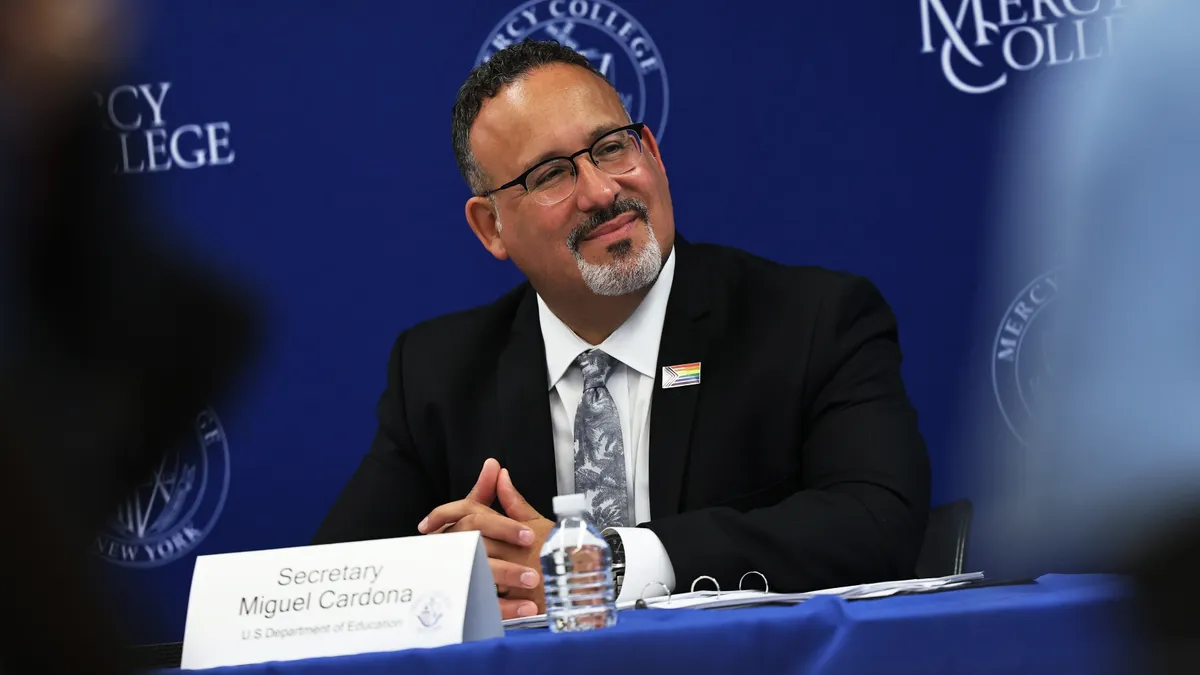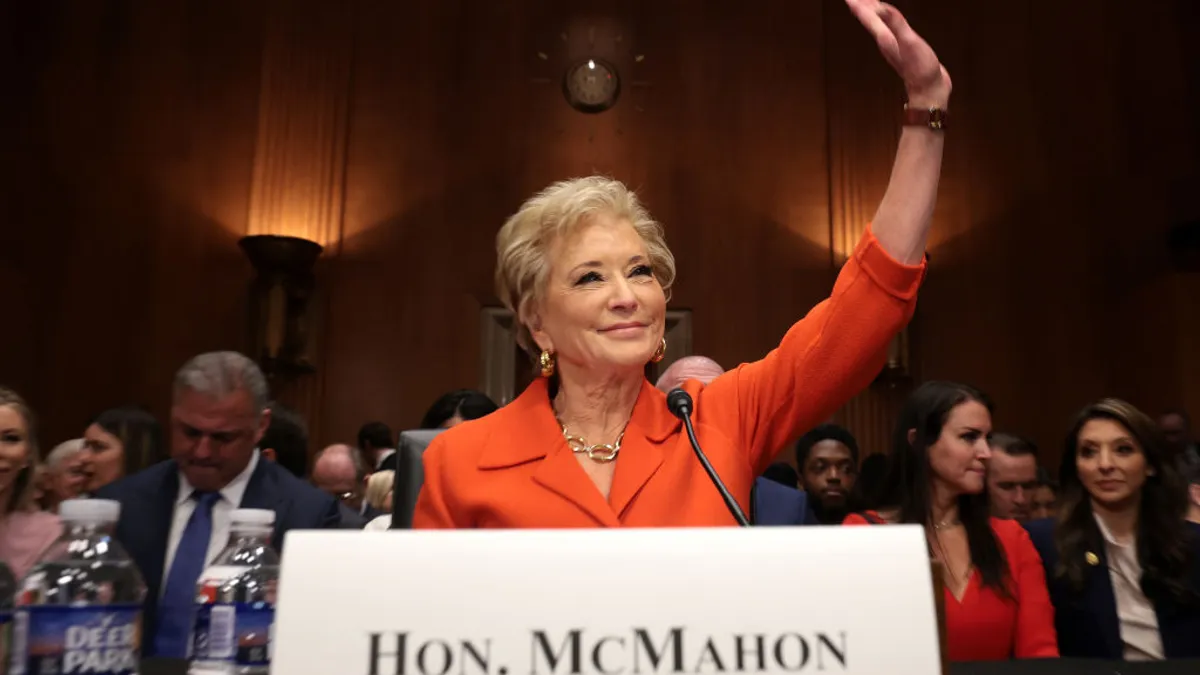Last week, the U.S. Department of Education published its long-awaited regulatory proposal on Title IX, the federal law that bans sex-based discrimination in schools that receive federal funding.
While the law once was best known for attempting to ensure equity in athletics, over the last 11 years it has morphed into one of the primary tools for defending against campus sexual violence.
The Biden administration’s draft rule outlines the steps colleges and K-12 schools would need to follow to investigate and possibly punish sexual misconduct. It would replace one issued by former Education Secretary Betsy DeVos that took effect in August 2020. DeVos said she wanted to preserve due process in Title IX proceedings, and her rule created a courtroom-style setting for evaluating reports of sexual violence.
The department’s draft rule contains some DeVos-era elements, but would largely dismantle the current regulation. It would give colleges flexibility to decide whether to hold a live hearing to assess sexual assault claims rather have the type of hearing be mandated, for instance.
Below, we outline five key provisions of the department’s plan that colleges will likely need to understand. The draft rule will likely not come into force for many months, as the department must collect public feedback during a 60-day comment period and respond to the comments in the regulation’s final iteration.
No more required live hearings
A cornerstone of the current rule is that sexual misconduct cases typically must be resolved with a live hearing. Accused and accusing students sit before a panel of decision-makers, and both parties are able to go through the process with an adviser of their choice.
Critics have likened this system to a mini courtroom. A student’s representative can be a lawyer, but also a parent or other advocate. That adviser is allowed to cross-examine the other side, which is partially why advocates for sexual assault survivors say the model dissuades reporting. They argue it’s stressful and too arduous for students.
Meanwhile, civil liberties activists applaud the system, saying it affords students due process protections.
The Biden administration’s plan would eliminate mandated live hearings. Colleges could choose whether to hold them, and they could also decide whether they want the decision-makers or advisers to ask relevant questions.
But colleges could also pursue what’s known as the single-investigator model, in which one official investigates and makes a decision in a case. However, some Title IX experts say the single-investigator framework has fallen out of favor in the last several years. Hundreds of students in recent years have sued colleges over allegedly mishandling their Title IX cases, and some courts have railed against the single-investigator system as not providing due process.
Off-campus conduct
The DeVos regulation significantly limits the cases colleges need to investigate off campus.
Institutions only need to look into those that occurred within the scope of their programs or activities. If a sexual assault occurred in an apartment not affiliated with a college, for instance, it would not need to investigate it.
The new proposal states colleges need to address a hostile educational environment even if the misconduct happened outside of its buildings.
Sexual harassment definition expanded
DeVos’ rule adopted the U.S. Supreme Court’s definition of sexual harassment as unwelcome conduct “so severe, pervasive and objectively offensive” that it would interfere with a student’s education.
This was narrowed from the definition the Obama administration had previously put in guidance. Sexual assault survivor supporters feared the smaller scope would mean some forms of harassment — such as verbal misconduct — would not be eligible for remedy under Title IX. They also said in some cases misconduct would have to be repeated for colleges to investigate.
Many colleges have, however, continued to probe cases that may not fall into DeVos’ restricted definition.
The Biden administration’s draft rule would broaden prohibited behavior to “all forms of sex-based harassment, including unwelcome sex-based conduct that creates a hostile environment by denying or limiting a person’s ability to participate in or benefit from a school’s education program or activity,” according to an agency fact sheet.
This would expand the number of cases colleges must investigate.
Informal resolutions
One part of the DeVos regulation more widely praised was the option for colleges to employ an informal resolution — meaning one that doesn’t involve a live hearing — if an accused student and accuser agree to it. This could involve an accused student taking sexual harassment prevention training, for example.
Colleges can’t use informal resolutions for an employee abusing a student, however.
The Biden administration’s proposed regulation largely preserves this piece of the DeVos rule and similarly doesn’t allow for that type of agreement for an employee harassing a student.
However, the DeVos rule only gives the option for informal resolution if a formal complaint is filed. The new proposal gives colleges the ability to use informal resolutions if they receive any information about behavior that may qualify as sexual discrimination under Title IX.
LGBTQ protections
The DeVos regulation doesn’t offer LGBTQ protections. The new policy proposal changes that, and states that discriminate against an individual based on gender identity or sexual orientation would constitute harassment under Title IX. This is one of the most contentious parts of the proposal.
But the Biden administration’s draft rule doesn’t define criteria for transgender students to participate in sports that align with their gender identity. Instead, the administration said it plans to pursue a separate rulemaking process on Title IX and athletics.
Conservatives have railed against the idea of transgender students competing in athletics. U.S. Rep. Virginia Foxx of North Carolina, the top Republican on the House Education and Labor Committee, said in a statement the regulation would “demolish due process rights and the safety of young women and girls across the country, with promised regulations still to come to undermine women’s access to athletic opportunities.”























